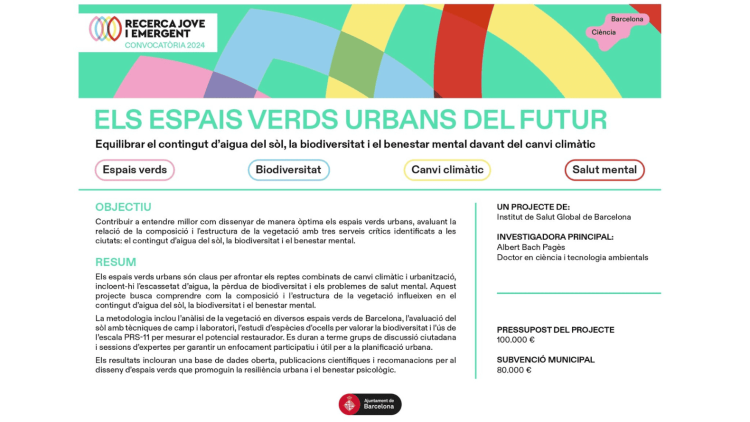THE URBAN GREEN SPACES OF THE FUTURE
Balancing soil water content, biodiversity and mental well-being in the face of climate change
The objective is to contribute to a better understanding of how to optimally design urban green spaces by evaluating the relationship between vegetation composition and structure and three critical services identified in cities: soil water content, biodiversity, and mental well-being.
Center: Institut de Salut Global de Barcelona
Urban green spaces are key to addressing the combined challenges of climate change and urbanization, including water scarcity, biodiversity loss, and mental health issues. This project aims to understand how vegetation composition and structure influence soil water content, biodiversity, and mental well-being.
The methodology includes vegetation analysis in various green spaces across Barcelona, soil assessment through field and laboratory techniques, bird species studies to evaluate biodiversity, and the use of the PRS-11 scale to measure restorative potential. Citizen discussion groups and expert sessions will be held to ensure a participatory approach that is useful for urban planning.
The results will include an open database, scientific publications, and recommendations for the design of green spaces that promote urban resilience and psychological well-being.


